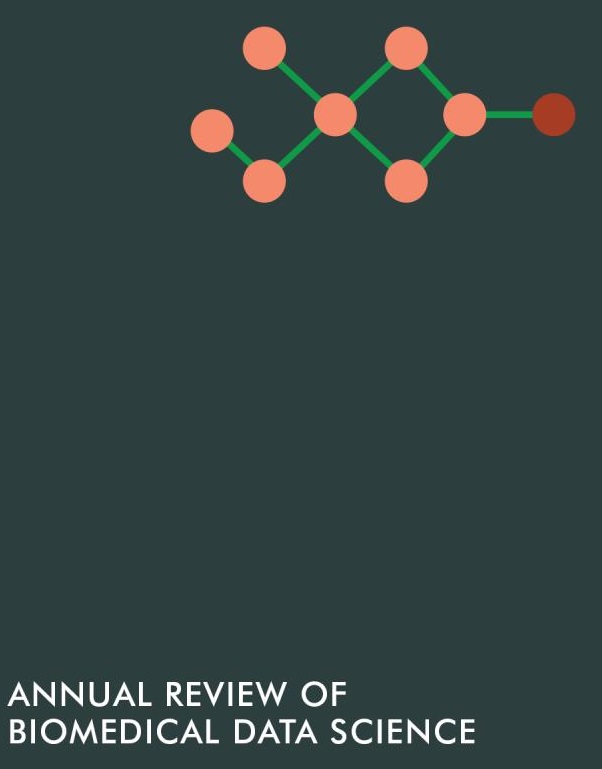Generating Clinical-Grade Gene-Disease Validity Classifications Through the ClinGen Data Platforms.
IF 7
Q1 MATHEMATICAL & COMPUTATIONAL BIOLOGY
Annual Review of Biomedical Data Science
Pub Date : 2024-04-25
DOI:10.1146/annurev-biodatasci-102423-112456
引用次数: 0
Abstract
Clinical genetic laboratories must have access to clinically validated biomedical data for precision medicine. A lack of accessibility, normalized structure, and consistency in evaluation complicates interpretation of disease causality, resulting in confusion in assessing the clinical validity of genes and genetic variants for diagnosis. A key goal of the Clinical Genome Resource (ClinGen) is to fill the knowledge gap concerning the strength of evidence supporting the role of a gene in a monogenic disease, which is achieved through a process known as Gene-Disease Validity curation. Here we review the work of ClinGen in developing a curation infrastructure that supports the standardization, harmonization, and dissemination of Gene-Disease Validity data through the creation of frameworks and the utilization of common data standards. This infrastructure is based on several applications, including the ClinGen GeneTracker, Gene Curation Interface, Data Exchange, GeneGraph, and website.通过 ClinGen 数据平台生成临床级基因-疾病有效性分类。
临床基因实验室必须能够获取经过临床验证的生物医学数据,以实现精准医疗。由于缺乏可访问性、规范化结构和评估一致性,疾病因果关系的解释变得复杂,导致在评估用于诊断的基因和基因变异的临床有效性时出现混乱。临床基因组资源(ClinGen)的一个关键目标是填补有关支持基因在单基因疾病中作用的证据强度的知识空白,这一目标是通过一个称为 "基因-疾病有效性整理 "的过程来实现的。在此,我们回顾了 ClinGen 在开发整理基础设施方面所做的工作,该基础设施通过创建框架和使用通用数据标准,支持基因-疾病有效性数据的标准化、协调和传播。该基础设施基于多个应用程序,包括 ClinGen GeneTracker、Gene Curation Interface、Data Exchange、GeneGraph 和网站。
本文章由计算机程序翻译,如有差异,请以英文原文为准。
求助全文
约1分钟内获得全文
求助全文
来源期刊
CiteScore
11.10
自引率
1.70%
发文量
0
期刊介绍:
The Annual Review of Biomedical Data Science provides comprehensive expert reviews in biomedical data science, focusing on advanced methods to store, retrieve, analyze, and organize biomedical data and knowledge. The scope of the journal encompasses informatics, computational, artificial intelligence (AI), and statistical approaches to biomedical data, including the sub-fields of bioinformatics, computational biology, biomedical informatics, clinical and clinical research informatics, biostatistics, and imaging informatics. The mission of the journal is to identify both emerging and established areas of biomedical data science, and the leaders in these fields.

 求助内容:
求助内容: 应助结果提醒方式:
应助结果提醒方式:


